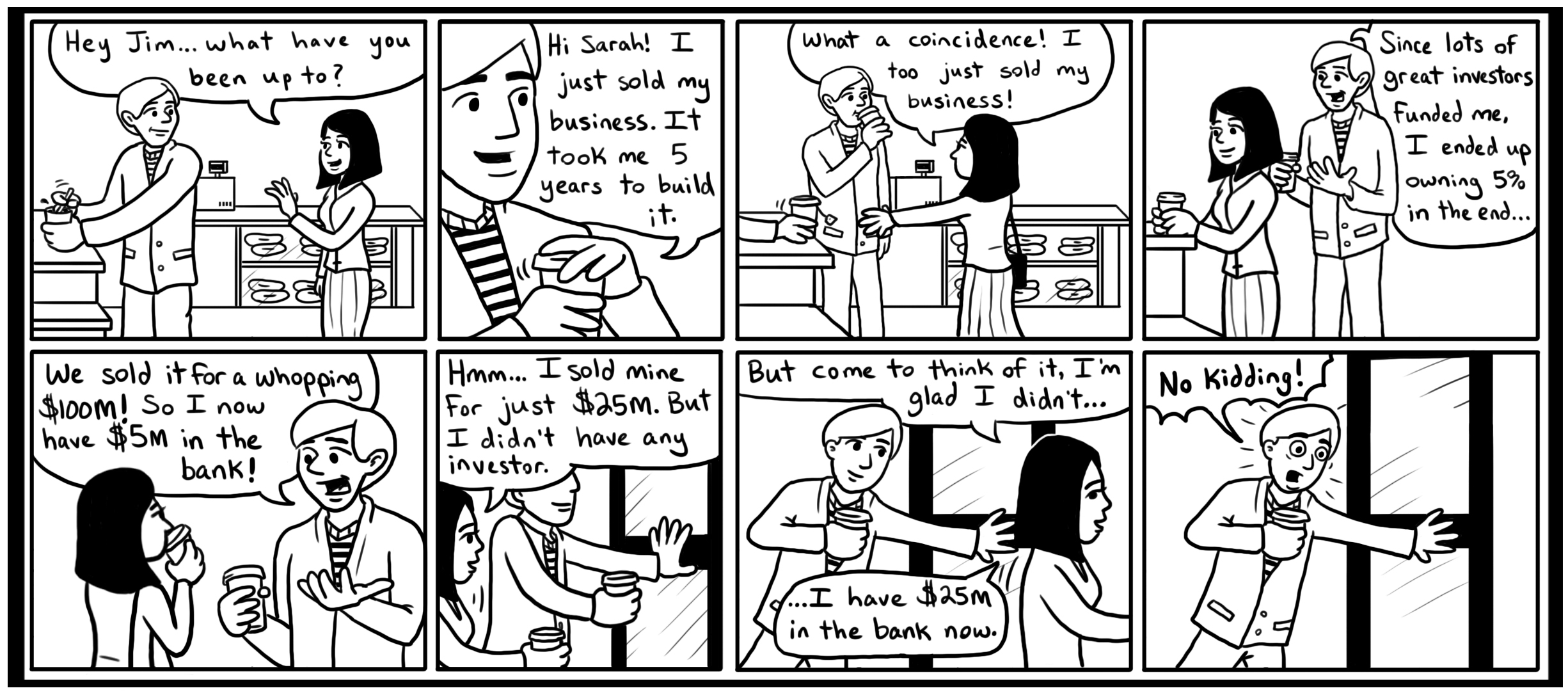Opinions
The Startup Velocity Question: What Hinders Acceleration in VC Funded Companies?

I have been running 1Mby1M since 2010. I find myself saying to entrepreneurs ad nauseam that VCs want to invest in startups that can go from zero to $100 million in revenue in 5 to 7 years.
Startups that do not have what it takes to achieve velocity should not be venture funded.
Experienced VCs, over time, have developed heuristics to gauge what constitutes a high growth venture investment thesis.
>>>PaaS: SaaS Companies NEED PaaS Strategy

I have been analyzing SaaS companies for over a decade. More recently, I have been looking into their acquisition strategies, as many have now reached critical mass and need to expand beyond the one product that made them successful to begin with.
Some clear trends are evident in the industry:
First, SaaS companies are acquiring capital efficient startups much more readily than heavily funded ones. Bootstrapped startups are particularly popular as acquisition targets. We’ve covered several prolific acquirers of small startups:
Featured Videos
Can 1M/1M Help Me Raise Money?
How Does 1M/1M Democratize Entrepreneurship Education?
How Does 1M/1M Democratize Management Consulting?
When Is The Right Time To Join 1M/1M?
Can 1M/1M Help Me With Business Development?
Can 1M/1M Help Me With Market Sizing?
Can 1M/1M Help Me Validate My Product?
Will I Have Private 1-on-1 Sessions In 1M/1M?
How Does 1M/1M Help Entrepreneurs Connect With Silicon Valley?
Mentoring or Consulting?
Why Does 1M/1M Charge $1000 a Year?
Why Does 1M/1M Partner With Local Organizations?
Why Don\’t Mentoring Networks Work?
Why Is It Important To Study With 1M/1M Now?
Dan Stewart Story
Vikrant Mathur Story
Colors: Snow Storm, Monochrome

Snow Storm, Monochrome | Sramana Mitra, 2017
I’m publishing this series on LinkedIn called Colors to explore a topic that I care deeply about: the Renaissance Mind. I am just as passionate about entrepreneurship, technology, and business, as I am about Art and Culture. In this series, I will typically publish a piece of Art – a painting, a poem, a piece of music, so forth – and I request you to spend a minute or two deeply meditating on it. I urge you to watch your feelings, thoughts, reactions to the piece, and write what comes to you, what thoughts it triggers, in the dialog area. Let us see what stimulation this interaction yields. For today – Snow Storm, Monochrome
Snow Storm, Monochrome | Sramana Mitra, 2017 | Water color and Pastel | 18 x 24, On Paper
Related Reading: Silicon Valley: The Next Decade
Best of Bootstrapping: Blitzscaling vs. Bootstrapping

You must have read something or the other about Blitzscaling, the hypergrowth phenomenon that Reid Hoffman has been championing:
What entrepreneur or founder doesn’t aspire to build the next Amazon, Facebook, or Airbnb? Yet those who actually manage to do so are exceedingly rare. So what separates the startups that get disrupted and disappear from the ones who grow to become global giants?
Colors: Stimulating the Renaissance Mind

I’m publishing a new series on LinkedIn called Colors to explore a topic that I care deeply about: the Renaissance Mind. I am just as passionate about entrepreneurship, technology, and business, as I am about Art and Culture. In this series, I will typically publish a piece of Art – a painting, a poem, a piece of music, so forth – and I request you to spend a minute or two deeply meditating on it. I urge you to watch your feelings, thoughts, reactions to the piece, and write what comes to you, what thoughts it triggers, in the dialog area. Let us see what stimulation this interaction yields. For today – White Snow, Brown Canyon.
Snow in Bryce Canyon, Utah | Sramana Mitra, 2017 | Watercolor and Pastel | 18 x 24, On Paper
Best of Bootstrapping: The Buy Side of Bootstrapping to an Exit

I am sure you are following the Bootstrapping to Exit (let’s call it B2E) articles. Last time, I showed you some case studies of larger companies who are acquiring bootstrapped startups.
In this post, I will double-click down on the buy-side psychology of the B2E phenomenon.
Best of Bootstrapping: Some Bootstrapping to Exit Case Studies

You have, presumably, read my recent article Bootstrapping to Exit. As a follow-up, let me offer you some case studies.
From Freshworks Has Acquired Nine Capital Efficient Startups:
All the nine acquisitions by Freshworks have been for undisclosed amounts. Cloud-based video collaboration platform 1CLICK, acquired in 2015, was founded in 2012 and had raised an undisclosed seed round from Blume Ventures and The Chennai Angels in 2014.
Best of Bootstrapping: Bootstrap First and Raise Money Later

I wrote a book called Billion Dollar Unicorns a few years back. Writing this book took me through the extensive process of talking to entrepreneurs who have built tech companies with valuations above a billion dollars. While there is a tremendous amount of serendipity involved in any extraordinary success story, one recurring theme comes up in these case studies. I am particularly excited to share this nugget because it applies broadly to all classes of entrepreneurial ventures.
Bootstrap first, raise money later.
That’s what Fred Luddy did when he founded ServiceNow back in 2005. Leveraging his domain knowledge and expertise in IT ServiceDesk software, he rapidly acquired 12 customers before raising funding. Initially, he started charging $25 per seat and the 12 customers paid up. He raised $2.5 million in venture capital WITH 12 customers, and ample validation.
Best of Bootstrapping: Excess is NOT Required for Success

Let’s do a thought experiment.
List all the things you want to do with your life if you had additional resources.
How many of these require additional money?
How much additional money do you need to acquire to afford these things?
How many of these require additional time?
Best of Bootstrapping: Do NOT Go to VCs as Beggars – Go as Kings

Negotiation is a straightforward game. You can only negotiate if you have options.
A long time ago, when I was a young entrepreneur making my way in Silicon Valley, I found myself at the mercy of people who knew I had no option.
I did not have a Green Card.
My negotiating leverage was limited, almost non-existent.
And people took advantage of me.
Best of Bootstrapping: How Can You Play this Low-Probability Game Intelligently?

Let me start with a quote from Marc Andreessen:
“At our venture capital firm we only invest in a sort of Silicon Valley–style tech. We see 3,000 inbound deals a year. And those are inbound and coming through our referral network, so those are sort of prequalified. We can do maybe 15 or 20 investments out of the 3,000 a year. So I like to say our day job is crushing entrepreneurs’ hopes and dreams. Our main skill is saying no, and getting people to not hate us.”
Source: Inside the mind of Marc Andreessen – Fortune Management
